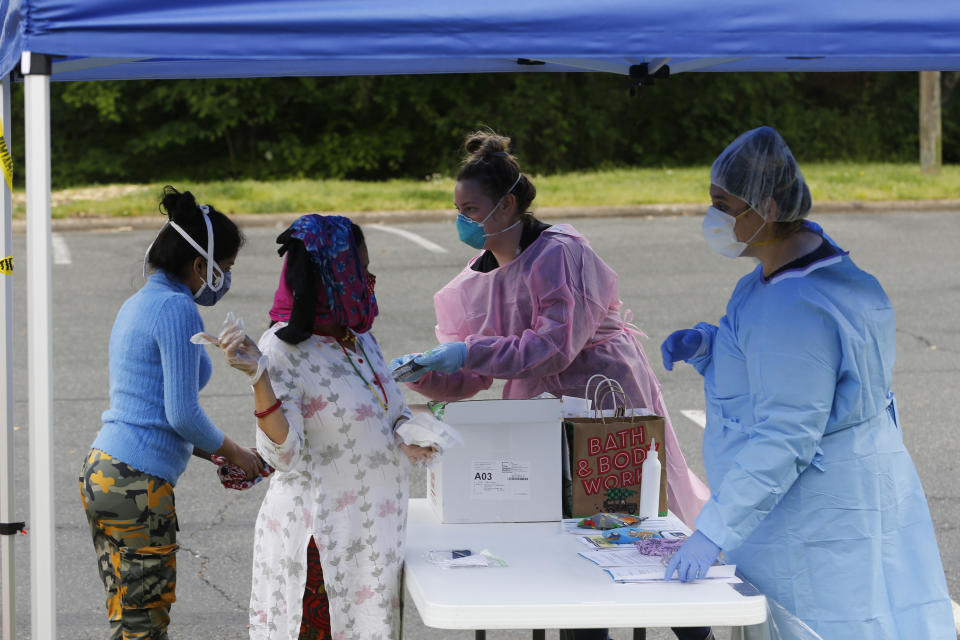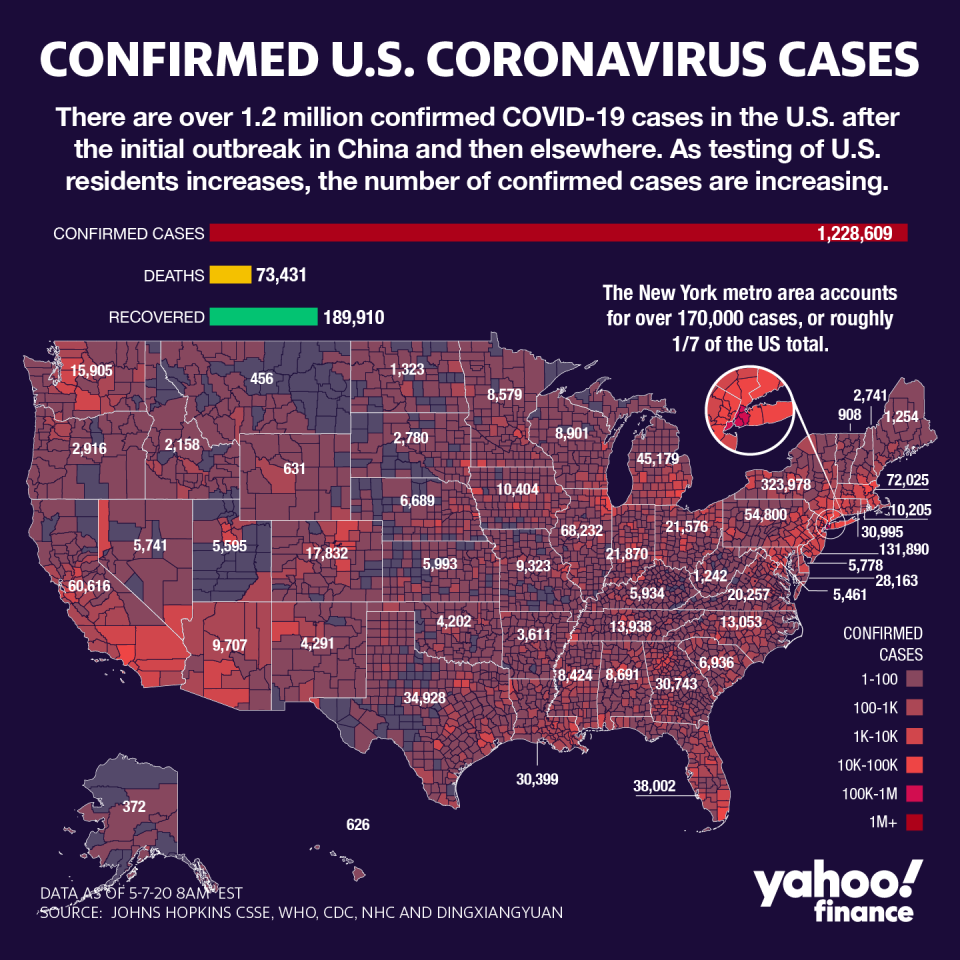Why Trump is back to normal, and you’re not
President Trump is beginning to travel again, after six weeks of quarantine in the White House. He visited a Honeywell facility in Arizona on May 5, violating his own government’s guidelines by not wearing a mask, even though he and his aides were packed tight with Honeywell officials. None of them wore masks, in fact, as if everything was back to normal. Isn’t Trump risking coronavirus infection?
Actually, he’s not. Trump and his aides, and anybody they come in contact with, have a special privilege: They can get a rapid test for the coronavirus that yields results in about 15 minutes. That means Trump can safely mingle with anybody, as long as they’ve been tested, with a negative result. Honeywell requires everyone in the Arizona plant to wear a mask and maintain safe distancing, but even the Honeywell execs accompanying Trump violated that rule. Honeywell confirmed those employees got a test, per “White House recommended protocol.” So Trump, his aides and a few chosen Honeywellers were all confirmed healthy, and freed of coronavirus restrictions.
When will you and I get this privilege? Not any time soon, and maybe never. The White House seems to have ready access to a rapid coronavirus test Abbott Labs began producing in March. The company has scaled up production to about 5 million test kits per month, or 167,000 per day, which might sound like a lot. But it’s barely a beginning. Sending people back to work safely could require millions of tests per day. Yet the United States is averaging only around 250,000 daily tests. That includes the Abbott test and other versions that take longer to process.
Trump’s activity illustrates why testing on a vastly broader scale is so important. At least two White House staffers with access to Trump and Vice President Mike Pence have tested positive for Covid-19. The White House has isolated people those two came in contact with. And many White House officials, including Trump and Pence, now undergo testing every day. That provides quick identification of anybody who contracts the virus, limiting the spread to others. Testing doesn’t eliminate the virus, obviously, but it can dramatically reduce the spread by identifying those who need to quarantine before they have symptoms.
Ordinary people can get together for work, entertainment, recreation, or anything, if there’s a way to assure everybody in the group is free of coronavirus. But that would require a scale of testing far beyond what we have. Employers, for example, might have to test every worker going to an office building or other work site once per week. If you tested just one-fifth of the U.S. workforce in this manner, that would be at least 25 million tests per week or 3.6 million per day—14 times the current testing rate. And that’s excluding the millions who have lost their jobs recently.

This is the scale of testing some public health experts and economists say is necessary to begin easing lockdown restrictions while also preventing a resurgence of the virus. Nobel-winning economist Paul Romer has been urging Congress to provide $100 billion for a national “test and isolate” program in which every American can get tested. A group of prominent health care experts argues that an effective national testing plan could be built for $47 billion.
Congress has already provided $25 billion for testing, but that is filtering out to states and cities in a more ad hoc way than experts recommend. President Trump, for his part, has shown no interest in a national testing plan, or in a federal corps of contact tracers who would identify people exposed to somebody with the virus, so they can self-isolate. Trump has said repeatedly it’s the states’ responsibility to manage testing, not Washington’s.
Another wave of closures
The obvious irony for Trump is that he stands to gain from scaled-up testing, and lose from a chronic shortage of testing. The best path to reopening the economy is to have precautionary measures in place to rapidly identify those who are infected with the virus as people begin to gather in groups again. With that capability, business can begin to operate with confidence, perhaps getting a recovery going by the time of the presidential election in November. Without that capability, there are likely to be recurring outbreaks that force waves of closures and leave workers and shoppers rattled. Instead of a recovery, Trump might have to explain a prolonged downturn by Election Day.

Even Congress can’t operate normally. Trump has offered the House and Senate as many of the rapid tests as needed to test members frequently, but both the House and Senate have declined. No doubt, they’d love the special privilege—especially since many members of Congress are over 60 and more vulnerable to the virus. But House Speaker Nancy Pelosi and Senate Majority Leader Mitch McConnell probably realize it’d be bad form to cut the line for a key protective measure that’s not readily available to their constituents.
Trump’s own rallies are at stake. Trump and his aides might be able to travel safely around the country, as long as everybody they come in contact with tests negative, per White House protocol. But Trump can’t pack 20,000 people into an arena unless they can all get tested, too. Some Trumpers might think testing is unnecessary, but even governors allowing some businesses to reopen still prohibit large gatherings.
Trump should consider his own freedom to move around a template for the rest of us. Instead, he’s leaving it to governors and mayors to provide that privilege throughout America. It’ll be a while before the rest of America catches up with Trump.
Rick Newman is the author of four books, including “Rebounders: How Winners Pivot from Setback to Success.” Follow him on Twitter: @rickjnewman. Confidential tip line: rickjnewman@yahoo.com. Encrypted communication available. Click here to get Rick’s stories by email.
Read more:
Get the latest financial and business news from Yahoo Finance
Follow Yahoo Finance on Twitter, Facebook, Instagram, Flipboard, SmartNews, LinkedIn, YouTube, and reddit.

